Are you dealing with a noisy tenant and unsure how to address the issue? Writing a complaint letter can seem daunting, but it's an important step in maintaining a peaceful living environment. In this article, we'll guide you through crafting a clear and effective letter that communicates your concerns while fostering a respectful dialogue. So grab a cup of tea, and let's dive into the essential tips for addressing noise complaints with your tenant!
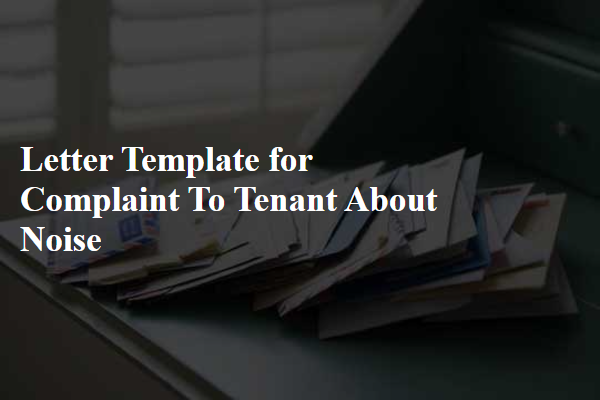
Clear and concise introduction
Excessive noise disturbances can significantly affect the peace and comfort of a living environment, particularly in residential settings such as apartment complexes. Numerous complaints have been documented regarding late-night activities causing disruptions for fellow tenants. It is essential to address this issue promptly to maintain a harmonious community. Notably, noise levels exceeding 50 decibels during nighttime hours have been measured, correlating with local noise ordinances. Clear communication about this matter can foster understanding and encourage adherence to community standards, ensuring a pleasant atmosphere for everyone involved.
Specific examples of noise issues
Excessive noise disturbances can significantly impact the quality of living in a residential setting. A common issue reported includes loud music played during late-night hours, specifically after 10 PM, affecting neighboring units' peace. Another frequent complaint concerns persistent footsteps from high-traffic areas or heavy furniture moving overhead during evening hours, leading to disruption for tenants below. Additionally, frequent gatherings can generate loud conversations and laughter, particularly evident over weekends, severely disrupting the quiet enjoyment of shared living spaces. Lastly, sounds from pets, such as barking dogs, have been noted during both daytime and nighttime, creating additional stress and discomfort for nearby residents. These noise complaints highlight the need for adherence to community noise regulations to foster a respectful living environment for all tenants involved.
Reference to lease agreement or local laws
Excessive noise disturbances in residential units can significantly disrupt the peace of neighboring tenants, often leading to complaints. Local noise ordinances, such as those in City of Los Angeles, typically set acceptable noise levels to maintain residential tranquility, often prohibiting disturbances beyond 65 decibels after 10 PM. Under the lease agreement signed on January 5, 2023, tenants are required to maintain reasonable noise levels to ensure comfort for all residents. Continued violations can result in actions as outlined in the lease, including potential fines or eviction proceedings. It is essential to address such issues promptly to foster a harmonious living environment and adhere to community standards.
Request for resolution or corrective action
Frequent disturbances from excessive noise levels in the rental property, such as loud music or gatherings, can disrupt peace and quiet for neighboring tenants. These disturbances often occur during late-night hours, particularly after 10 PM, violating local noise ordinances established in many municipalities. Specific complaints from surrounding tenants may include disruptive sounds like shouting, loud television, or musical instruments impacting daily activities and sleep patterns. Immediate resolution is necessary to ensure compliance with lease agreements and to foster a respectful living environment for all tenants involved.
Contact information for further discussion
Excessive noise disturbances can significantly affect the comfort and quality of life for residents in shared living spaces, such as apartment complexes located in urban areas. Tenants often report issues like loud music, late-night parties, or disruptive activities that exceed acceptable levels, specifically above 60 decibels during quiet hours, typically defined as 10 PM to 7 AM. This situation may lead to complaints filed with property management or local noise ordinances, which play a crucial role in maintaining community peace. Property managers may provide contact information for effective communication regarding noise complaints, facilitating resolution and fostering a harmonious living environment.
Letter Template For Complaint To Tenant About Noise Samples
Letter template of formal complaint regarding excessive noise disturbances from tenant.

Letter template of notification to tenant about noise complaints from neighbors.
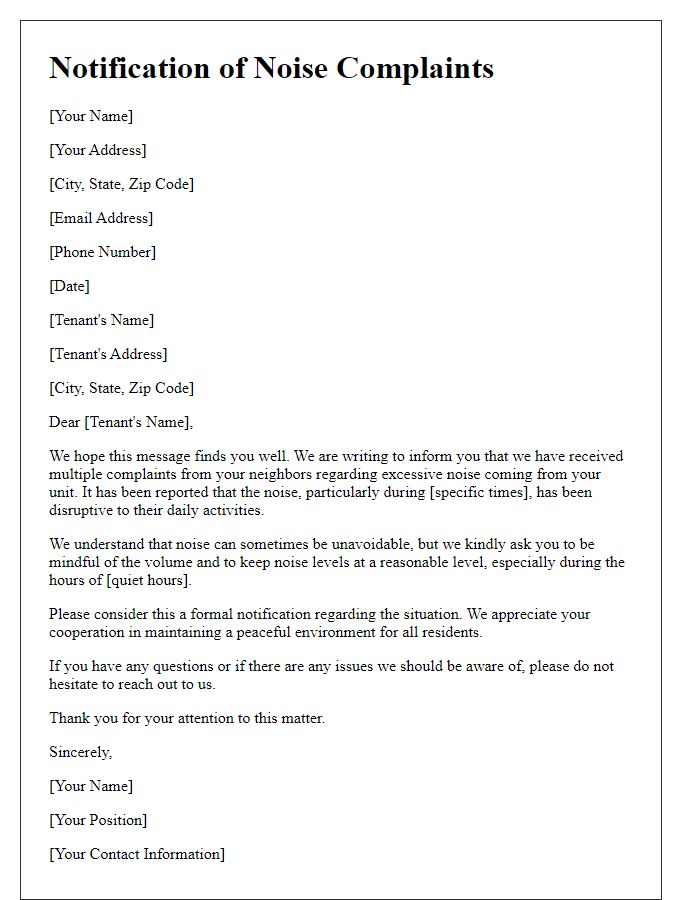
Letter template of request for tenant to address noise issues in the apartment.
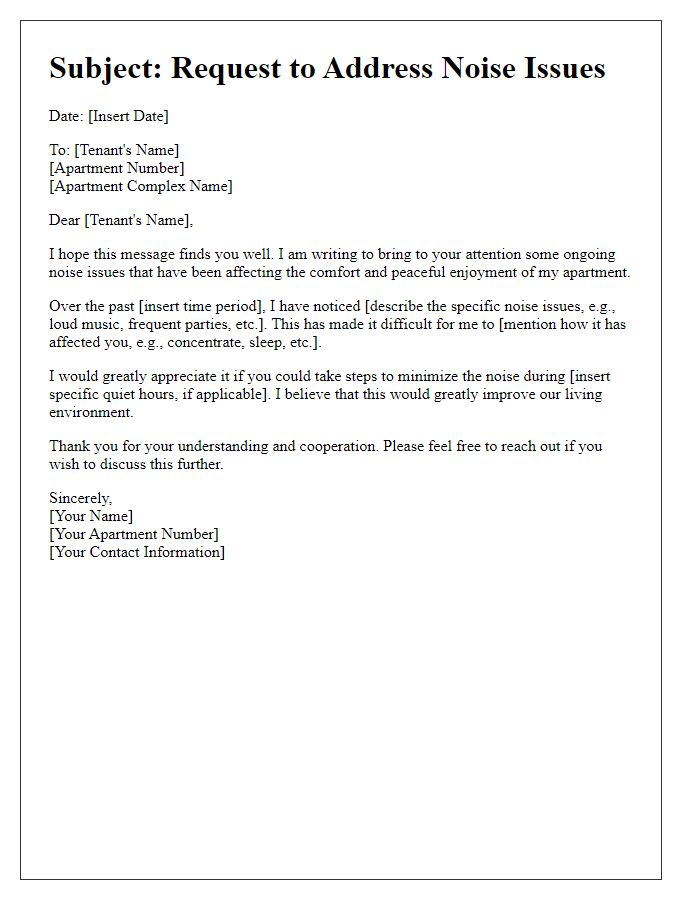
Letter template of warning to tenant concerning repeated noise infractions.
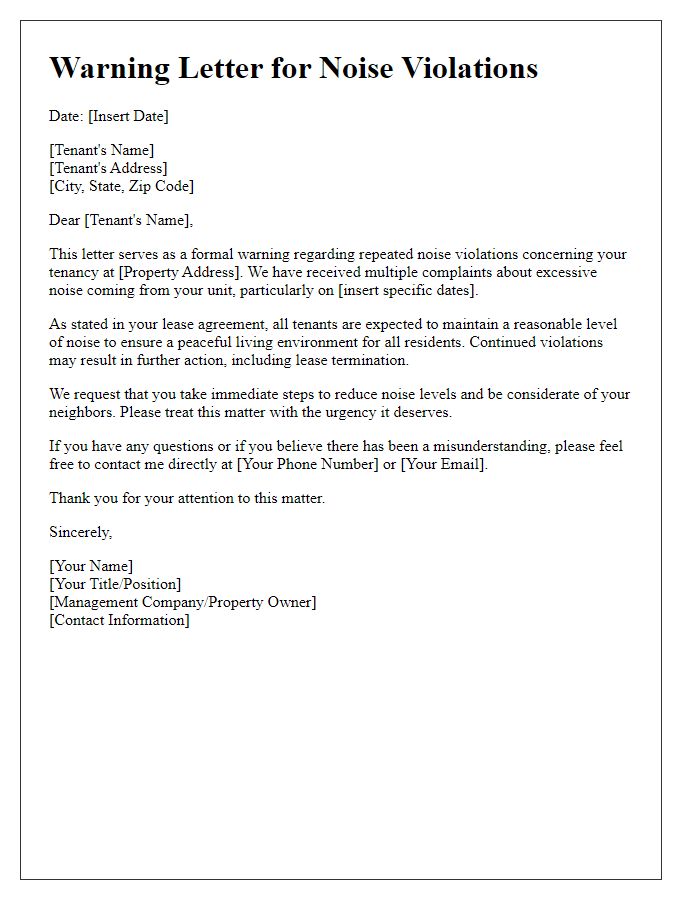
Letter template of reminder to tenant about lease agreement noise policies.
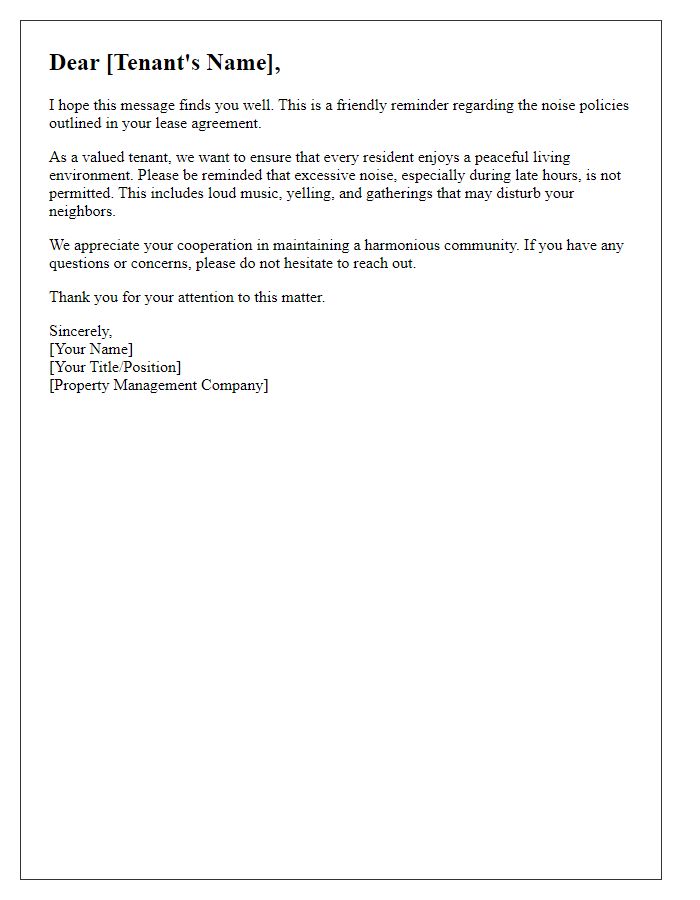
Letter template of official grievance against tenant for disruptive noise levels.
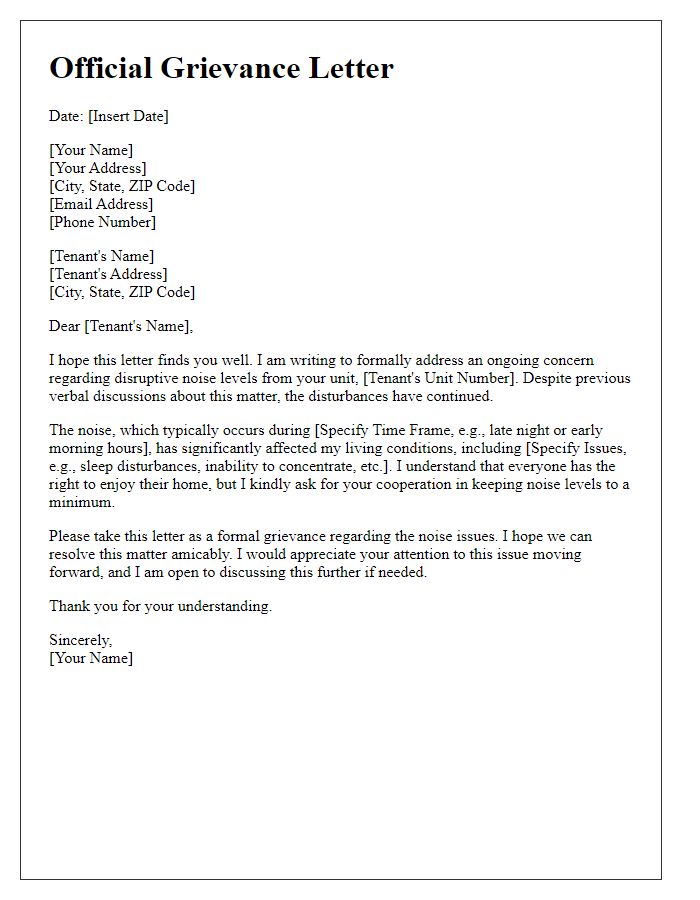
Letter template of discussion invite regarding noise concerns with tenant.
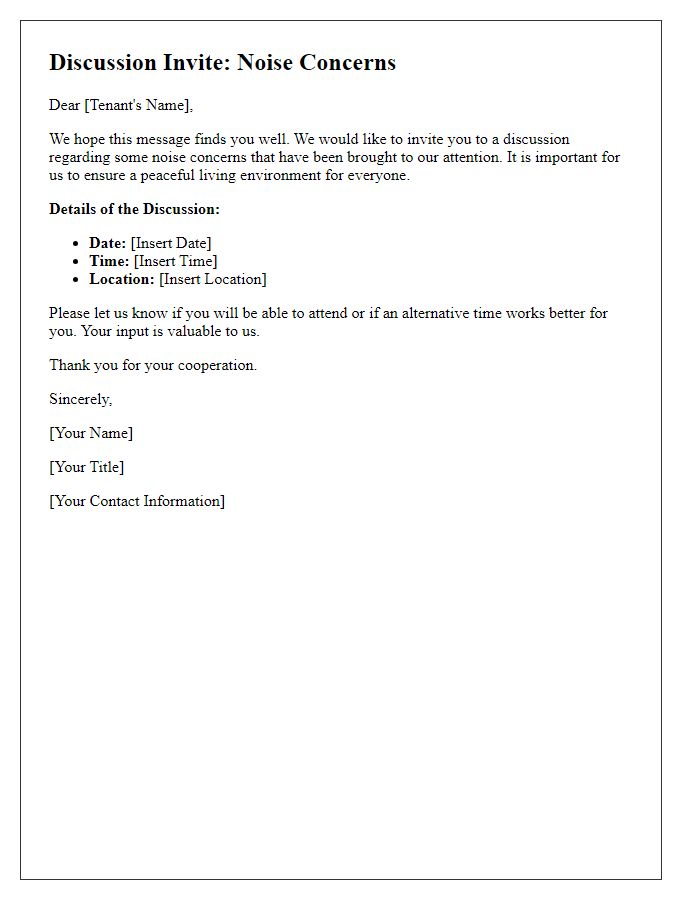

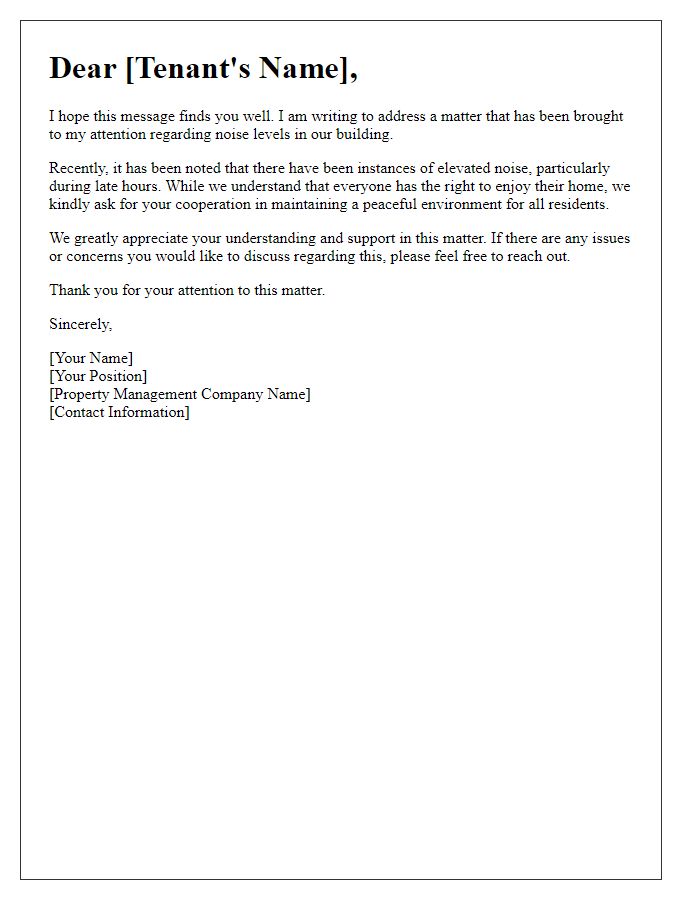
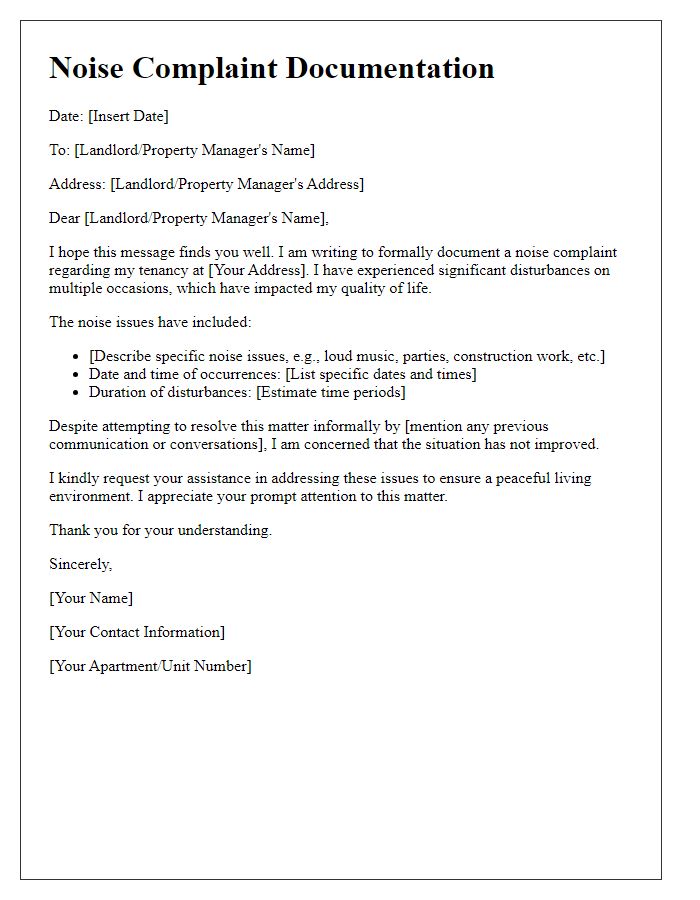
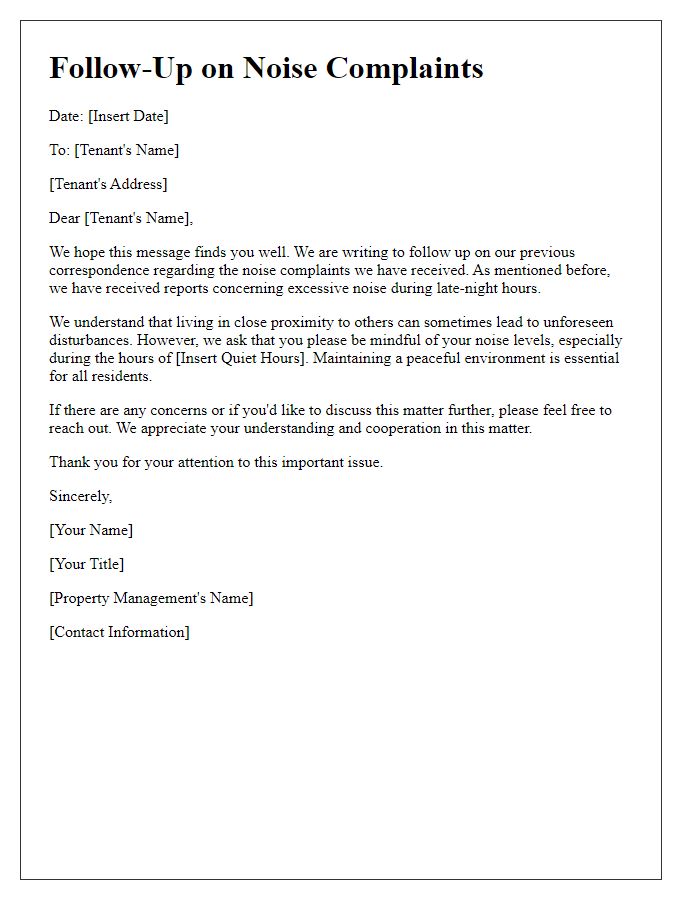


Comments